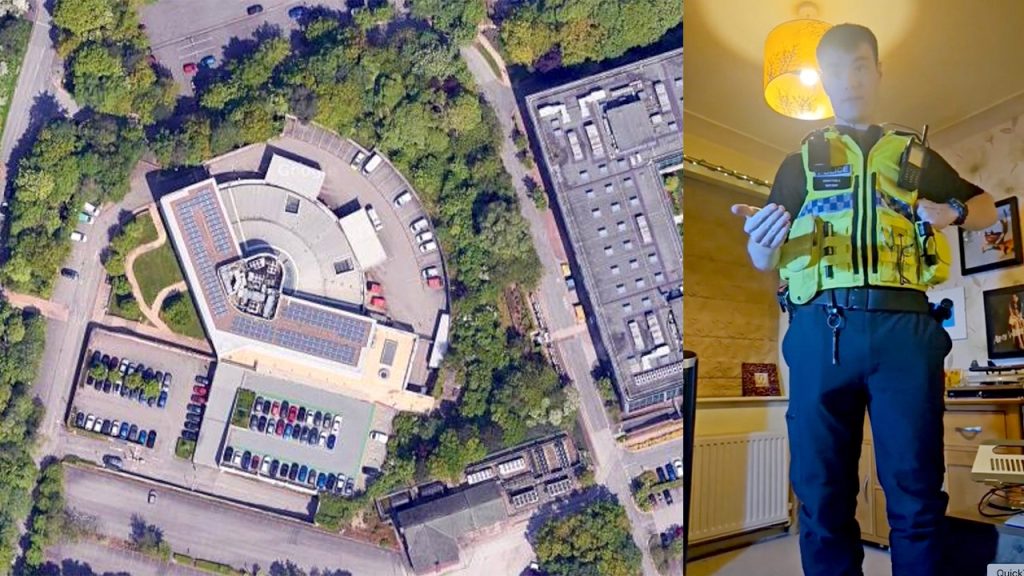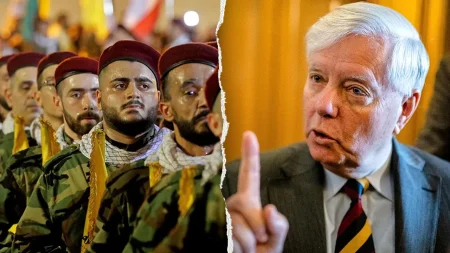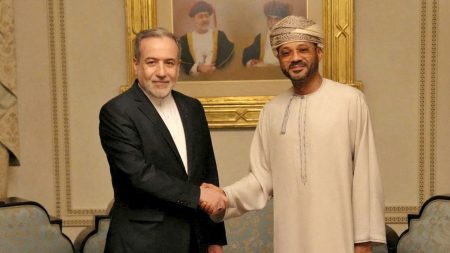British Blogger Arrested for Anti-Hamas Social Media Post: Free Speech Concerns Raised
In a troubling incident that raises serious questions about the boundaries of free expression in the United Kingdom, 47-year-old blogger Pete North found himself at the center of a free speech controversy after being arrested for sharing a controversial meme online. The September 25th arrest, which North captured on video, showed police officers arriving at his Yorkshire home to detain him for content that a member of their hate crime team “didn’t appreciate.” The footage reveals an officer explaining that North was being arrested “on suspicion of publishing or distributing written material intended to stir up racial hatred,” a serious allegation that left North bewildered and concerned about the state of free expression in modern Britain.
The post that triggered the police action was shared by North on the social media platform X (formerly Twitter) in August. The controversial meme featured a Palestinian flag accompanied by offensive language directed at Palestine, Hamas, and Islam, concluding with a suggestion that protesters should “F— off to Muslim country and protest.” While North acknowledges the meme contained offensive references to Palestine and Islam, he was particularly surprised that during his police interview, officers seemed fixated specifically on the “F— Hamas” portion of the message. This focus confused North, who pointed out to the interviewing officer that Hamas is “a proscribed terrorist organisation internationally, including in Britain.” Most alarmingly, according to North’s account to The Telegraph, when he asked the officer if he knew who Hamas was, the officer appeared uninformed about the organization and its actions, including the October 7 attacks that had dominated international headlines.
The disconnect between law enforcement’s approach and the context of current events deeply troubled North. He claims to have pressed the officer about whether he was aware of Hamas’s actions, including the killing of civilians, only to find the officer was “totally oblivious.” This apparent knowledge gap raises significant questions about how well-equipped police departments are to navigate the complex intersection of hate speech laws and political commentary, especially regarding international conflicts and designated terrorist organizations. After several hours of questioning, North was released without charge, but the experience left him with serious concerns about the policing of online speech in the United Kingdom, particularly when it comes to contentious political topics or organizations widely condemned by the international community.
North’s frustration with the incident extends beyond his personal inconvenience to broader concerns about freedom of expression. “I feel quite strongly that what political cartoons and memes I post on social media is none of the police’s business,” he told The Telegraph, articulating a sentiment that resonates with many who worry about the expansion of police authority into the realm of online speech and political commentary. His experience highlights the tension between efforts to combat hate speech and the protection of legitimate political expression, even when that expression is provocative or offensive. North believes the intent behind such policing isn’t necessarily to secure convictions but rather to create a chilling effect that discourages citizens from posting provocative content online, describing it as an attempt to “terrorize people like me into thinking twice about posting spicy memes.”
The response from North Yorkshire Police has been limited, with the department confirming to UK media that “A 47-year-old man was arrested on suspicion of publishing or distributing written material intended to stir up racial hatred. He has been released under investigation while inquiries continue.” This terse statement provides little insight into the department’s criteria for determining when online speech crosses the line into illegal territory, particularly when that speech targets organizations already designated as terrorist groups by the government. The lack of clarity from law enforcement about where exactly the boundaries lie adds to the uncertainty faced by citizens navigating the increasingly complex landscape of online expression in Britain.
North’s case is not occurring in isolation but rather represents a growing pattern of tensions between traditional notions of free speech and newer laws designed to combat hate and protect vulnerable groups. In the United Kingdom, where hate speech laws are more restrictive than in countries like the United States, there has been ongoing debate about how to balance these competing interests. The arrest of a citizen for criticizing a designated terrorist organization, regardless of the offensive language used, strikes many observers as an overreach that potentially undermines legitimate political discourse. As investigations continue, North’s case may become an important reference point in ongoing discussions about the proper role of law enforcement in monitoring and regulating online speech, particularly when that speech relates to contentious international conflicts and organizations.














